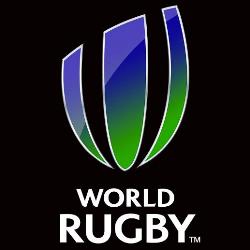 Players making contact with an opponent’s head in “reckless tackles” will receive a yellow card at least in changes to rules over high tackles.
Players making contact with an opponent’s head in “reckless tackles” will receive a yellow card at least in changes to rules over high tackles.
Players will be punished even if the tackle starts below the shoulders.
If head contact is accidental – for example, if a ball-carrier slips into a tackle – a penalty will be awarded.
A reckless tackle occurs when a player “knew or should have known that there was a risk of making contact with the head of an opponent, but did so anyway”.
In September 2015, World Rugby’s chief medical officer Martin Raftery said that the game’s rules may have to change to reduce concussions.
Exeter’s Rob Baxter not convinced
Exeter boss Rob Baxter says he is concerned new directives on high tackles could be going too far.
“I think they always take a little while to find the correct balance,” Baxter said.
World Rugby says the new rules “aim to change culture in the sport to ensure that the head is a no-go area”.
A reckless tackle occurs when a player “knew or should have known that there was a risk of making contact with the head of an opponent, but did so anyway”.
But Baxter says players should have been more widely consulted before the directives were agreed upon.
“If players are having to retire from concussive injuries those things need to be addressed,” he added.
“I think my way of dealing with some of the directives which are coming out now, which are based for the right reasons on the health of the players, is to probably ask the players.
“At some stage they’re going to have to be the ones who go ‘we think the balance on the protection around how we get hit or are tackled or what we can do in a game is going too far, you’re over protecting us and it’s spoiling the game we love’.”
The Exeter boss, who led the Chiefs to last year’s Premiership final six years after gaining promotion to the top flight, says referees should have more responsibility to decide what is and is not a reckless tackle.
“I think if you want them to referee games of rugby well you have to give them responsibility, and the majority of good referees have a really good feeling for what’s going on in a rugby game and whether it’s a genuine rugby incident or it’s a deliberate act of foul play,” the 45-year-old said.
“Ultimately it normally does take a directive to start the process and over a period of time they get worked out and tinkered with and hopefully we’ll find the right balance.”
bbc